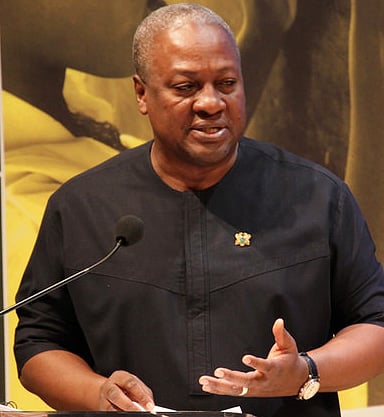Former President John Dramani Mahama, during a recent thank-you tour in Ghana’s Western Region, unveiled a set of proposed policy changes focused on national holidays and recognition of religious observances. Central to his announcement is the plan to reinstate Republic Day, celebrated on July 1st, as a national holiday. This date commemorates Ghana’s transition to a republican form of government, a significant milestone in the nation’s journey towards self-determination. The holiday was removed from the list of nationally recognized holidays in 2019 under the previous administration of President Nana Akufo-Addo. Mahama’s proposal seeks to restore the significance of this date and re-establish its place in the national calendar. This move signals a commitment to honoring Ghana’s historical trajectory and recognizing the importance of republicanism in the country’s political landscape.
Further amplifying the importance of July 1st, Mahama proposed designating it also as a National Day of Prayer and Thanksgiving. This addition would layer a spiritual and reflective dimension onto the existing commemoration of Republic Day, offering an opportunity for collective introspection and gratitude for the nation’s progress. Furthermore, this day would continue to coincide with Senior Citizens’ Day, thereby maintaining the existing recognition and appreciation of the contributions made by Ghana’s elder population. The confluence of these three observances on a single date creates a multifaceted celebration encompassing national history, spiritual reflection, and intergenerational respect. Mahama indicated that he would soon announce a planning committee composed of religious leaders to oversee the organization and execution of this National Day of Prayer and Thanksgiving.
Mahama’s proposals also extend to addressing the needs and concerns of Ghana’s Muslim community. He reiterated his commitment to fulfilling a campaign promise of officially recognizing Eid al-Fitr, the festival marking the end of Ramadan, as a public holiday. This gesture underscores an intention to promote inclusivity and recognize the religious diversity within the nation. By formally acknowledging this important Islamic celebration, Mahama aims to solidify his commitment to representing and respecting the various faiths practiced within Ghana. This move carries significant symbolic weight, illustrating a dedication to ensuring all citizens feel valued and their religious practices are acknowledged within the national framework.
To implement these changes, Mahama outlined his intention to present an amendment to the Public Holidays Act to Parliament. This amendment would formally reinstate Republic Day as a national holiday and include the official recognition of Eid al-Fitr. This legislative approach demonstrates a commitment to following due process in enacting these changes. The amendment will require parliamentary approval, highlighting the importance of consensus-building and engaging in democratic processes to effect these policy adjustments. By formally amending the existing legislation, Mahama aims to ensure the permanence of these changes and solidify their place within the national legal framework.
During his address in the Western Region, Mahama expressed his gratitude for the support he received during the elections. He underscored his commitment to honoring the trust placed in him by the electorate and reaffirmed his dedication to delivering on his campaign promises. He specifically emphasized his focus on bringing tangible and life-changing development to the Western Region. This reassurance serves to maintain a connection with his constituents and reinforces his dedication to fulfilling his electoral mandate. By highlighting his commitment to regional development, Mahama aims to demonstrate that his policies are intended to benefit all parts of Ghana and contribute to overall national progress.
In essence, Mahama’s proposed policy changes regarding national holidays reflect a multi-pronged approach aimed at honoring historical milestones, fostering national unity, recognizing religious diversity, and appreciating the contributions of senior citizens. The reinstatement of Republic Day symbolizes a renewed focus on Ghana’s journey towards self-governance. The introduction of the National Day of Prayer and Thanksgiving provides an opportunity for collective reflection and gratitude. The official recognition of Eid al-Fitr demonstrates a commitment to inclusivity and respect for religious diversity. And the continued observance of Senior Citizens’ Day underscores the value placed on the wisdom and experience of Ghana’s elder population. These proposed changes, pending parliamentary approval, hold the potential to reshape the national calendar and reinforce important cultural and historical values within Ghanaian society.














